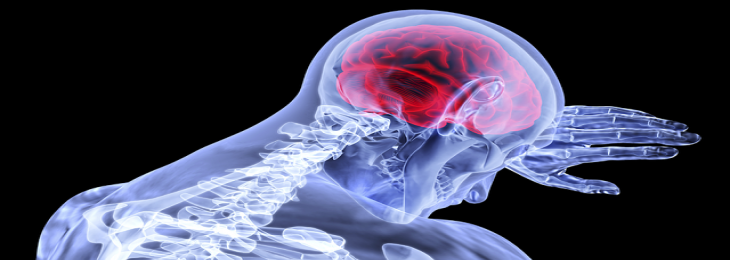Mar, 2021 - By WMR

A study by a group of researchers of Geisinger Health System, U.S. identified a gene variant responsible for stroke in elderly patients.
A stroke, also known as ‘cerebrovascular accident (CVA)’, or ‘brain attack’, occurs when part of the brain loses its blood supply and stops working. This eventually interrupts the functioning of that part of the body, which is controlled by the injured part of brain. According to Centers for Disease Control and Prevention (CDC), more than 795,000 people have a stroke every year in the U.S.
Cerebral small vessel disease (SVD) causes approximately one third of ischemic stroke globally. 87% of all strokes in the U.S. is ischemic stroke as stated by CDC. SVD is that type of stroke where part of the brain loses blood flow. It is found that SVD is generally linked to ageing and hypertension, although, some cases are caused by cysteine altering NOTCH3 gene variant.
Cerebral autosomal dominant arteriopathy with subcortical infarcts leukoencephalopathy (CADASIL) is the most common form of hereditary cerebral angiopathy. It is a rare condition caused by distinctive NOTCH3 missense variant, which leads to cysteine alteration in one of the 34 epidermal growth factor-like repeat (EGFr) domains of the NOTCH3 protein. It is also associated with SVD and increasing risk of stroke.
Researchers of Geisinger Health System, U.S. evaluated health records such as imaging and genomic sequencing data of 300 people taken for study. Researchers concluded that 118 had NOTCH3 gene variant and 12.6% had a history of stroke. Dementia, mild cognitive impairment, migraine with aura, and depression were also prevalent in the people taken for study. It is to be noted here that the specific variant causing CADASIL was rarely observed in 118 patients although they had NOTCH3 genetic variant. Researchers concluded that most of the individuals after the age of 65 would develop NOTCH3 associated SVD with cysteine altering NOTCH3 variants. The team also added that the rate of SVD and stroke is higher in individuals with NOTCH3 variant.

We will be happy to help you find what you need. Please call us or write to us: